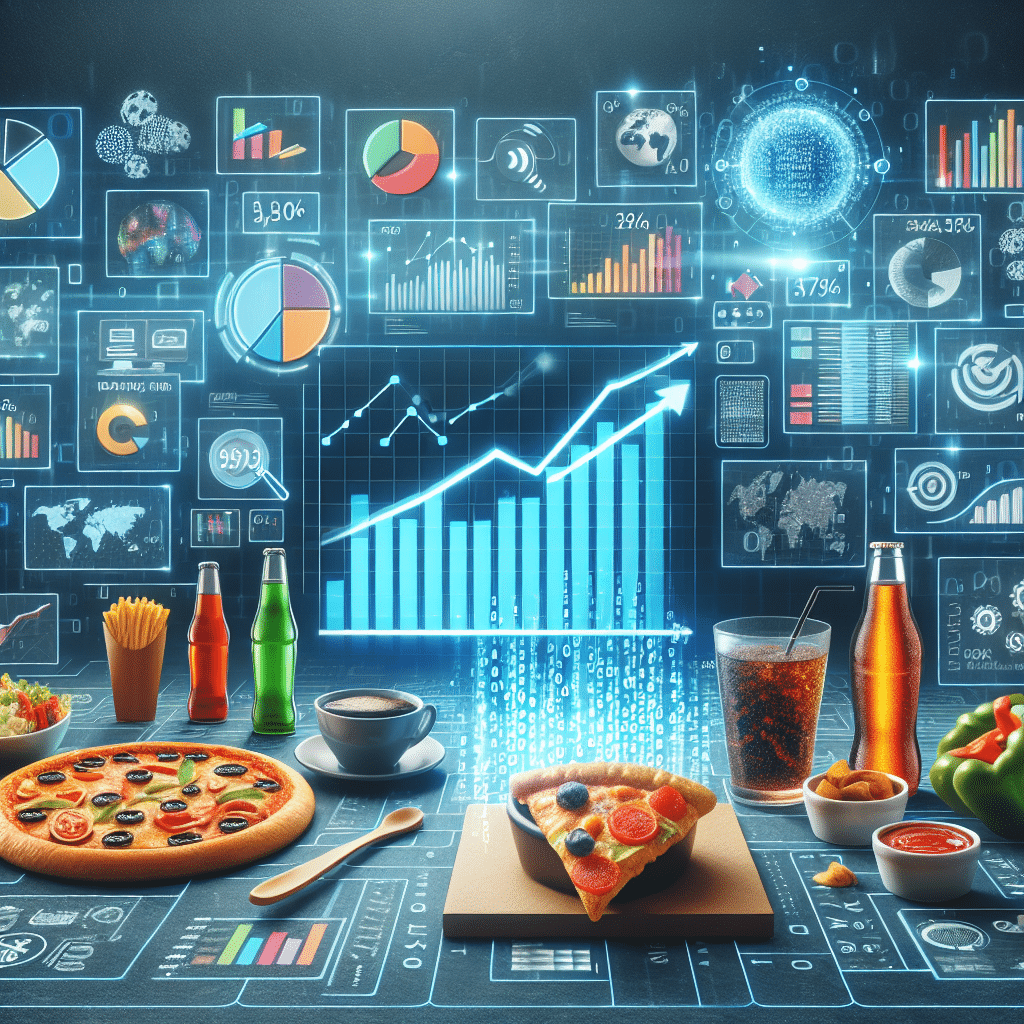What Is The Potential Of Using Data Analytics In The Food And Beverage Industry?
-
Table of Contents
- Data Analytics in the Food and Beverage Industry: Unlocking New Potential
- The Role of Data Analytics in the Food and Beverage Sector
- Supply Chain Optimization
- Consumer Insights and Personalization
- Product Development and Innovation
- Operational Efficiency and Cost Reduction
- Food Safety and Compliance
- Case Studies and Statistics
- Challenges and Considerations
- Conclusion: The Future of Food and Beverage with Data Analytics
- ETprotein: Enhancing Food and Beverage Products with Quality Proteins
Data Analytics in the Food and Beverage Industry: Unlocking New Potential

The food and beverage industry is a dynamic and competitive sector that is constantly evolving to meet consumer demands and market trends. With the advent of big data and advanced analytics, companies within this industry have an unprecedented opportunity to enhance their operations, improve customer satisfaction, and increase profitability. In this article, we will explore the potential of using data analytics in the food and beverage industry and how it can transform the way businesses operate.
The Role of Data Analytics in the Food and Beverage Sector
Data analytics refers to the process of examining large datasets to uncover hidden patterns, correlations, and insights. In the food and beverage industry, this can translate into a variety of applications, from supply chain optimization to personalized marketing strategies. Let’s delve into the specific areas where data analytics can make a significant impact.
Supply Chain Optimization
One of the most critical aspects of the food and beverage industry is the supply chain. Data analytics can help companies:
- Forecast demand more accurately to reduce waste and ensure product availability.
- Track and monitor the freshness and quality of products throughout the supply chain.
- Identify inefficiencies and bottlenecks to improve delivery times and reduce costs.
Consumer Insights and Personalization
Understanding consumer preferences and behaviors is key to success in the food and beverage industry. Data analytics enables businesses to:
- Analyze purchasing patterns to tailor product offerings and promotions.
- Segment customers for targeted marketing campaigns and product development.
- Enhance customer experiences by personalizing interactions and recommendations.
Product Development and Innovation
Data-driven insights can inform new product development by identifying emerging trends and unmet consumer needs. Companies can use analytics to:
- Test and refine new recipes or formulations based on consumer feedback.
- Predict the success of new products before launch.
- Optimize product assortments to maximize shelf space and sales.
Operational Efficiency and Cost Reduction
Efficiency is paramount in maintaining competitiveness. Data analytics helps companies:
- Monitor equipment performance to predict maintenance needs and prevent downtime.
- Analyze energy consumption to identify opportunities for cost savings.
- Optimize labor scheduling based on predicted busy periods.
Food Safety and Compliance
Data analytics can also play a crucial role in ensuring food safety and regulatory compliance by:
- Tracking the origin and handling of ingredients to quickly respond to food safety incidents.
- Monitoring production processes to ensure adherence to quality standards.
- Automating reporting for regulatory compliance and audits.
Case Studies and Statistics
Several leading companies in the food and beverage industry have already harnessed the power of data analytics with impressive results. For instance, a global beverage company used predictive analytics to optimize its distribution network, resulting in a 5% reduction in transportation costs. A major fast-food chain implemented data analytics to personalize their digital menu boards, which led to a 3.6% increase in sales.
According to a report by Grand View Research, the global food tech market is expected to reach $342.52 billion by 2027, growing at a CAGR of 6.0% from 2020 to 2027. This growth is partly driven by the adoption of data analytics in the industry.
Challenges and Considerations
While the potential of data analytics in the food and beverage industry is vast, there are challenges that companies must navigate, including:
- Data privacy and security concerns, especially with customer data.
- The need for skilled personnel to analyze and interpret data effectively.
- Integration of data analytics into existing systems and processes.
Companies must address these challenges head-on to fully leverage the benefits of data analytics.
Conclusion: The Future of Food and Beverage with Data Analytics
The potential of using data analytics in the food and beverage industry is immense. From optimizing supply chains to personalizing customer experiences, data analytics offers a wealth of opportunities for businesses to innovate and thrive. As technology continues to advance, the adoption of data analytics will become increasingly critical for companies looking to maintain a competitive edge in this fast-paced industry.
ETprotein: Enhancing Food and Beverage Products with Quality Proteins
In line with the advancements in data analytics, ETprotein is at the forefront of providing high-quality protein products that cater to the evolving needs of the food and beverage industry. Their extensive range of organic bulk vegan proteins and L-(+)-Ergothioneine (EGT) products are designed to meet the highest standards of quality and purity, making them an ideal choice for businesses looking to enhance their offerings with nutritious and sustainable ingredients.
Whether you’re developing new health-focused beverages, sports nutrition products, or plant-based food options, ETprotein’s proteins can help you create products that resonate with today’s health-conscious consumers. By incorporating ETprotein’s proteins into your product line, you can deliver the benefits of clean, allergen-free, and non-GMO ingredients that align with the latest market trends uncovered through data analytics.
About ETprotein:
ETprotein, a reputable protein and L-(+)-Ergothioneine (EGT) Chinese factory manufacturer and supplier, is renowned for producing, stocking, exporting, and delivering the highest quality organic bulk vegan proteins and L-(+)-Ergothioneine. They include Organic rice protein, clear rice protein, pea protein, clear pea protein, watermelon seed protein, pumpkin seed protein, sunflower seed protein, mung bean protein, peanut protein, and L-(+)-Ergothioneine EGT Pharmaceutical grade, L-(+)-Ergothioneine EGT food grade, L-(+)-Ergothioneine EGT cosmetic grade, L-(+)-Ergothioneine EGT reference grade and L-(+)-Ergothioneine EGT standard. Their offerings, characterized by a neutral taste, non-GMO, allergen-free attributes, with L-(+)-Ergothioneine purity over 98%, 99%, cater to a diverse range of industries. They serve nutraceutical, pharmaceutical, cosmeceutical, veterinary, as well as food and beverage finished product distributors, traders, and manufacturers across Europe, USA, Canada, Australia, Thailand, Japan, Korea, Brazil, and Chile, among others.
ETprotein specialization includes exporting and delivering tailor-made protein powder and finished nutritional supplements. Their extensive product range covers sectors like Food and Beverage, Sports Nutrition, Weight Management, Dietary Supplements, Health and Wellness Products, and Infant Formula, ensuring comprehensive solutions to meet all your protein needs.
As a trusted company by leading global food and beverage brands and Fortune 500 companies, ETprotein reinforces China’s reputation in the global arena. For more information or to sample their products, please contact them and email sales(at)ETprotein.com today.












